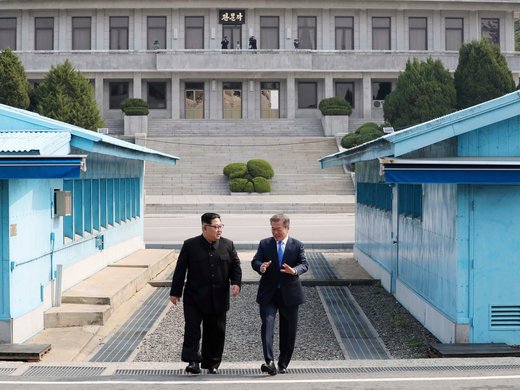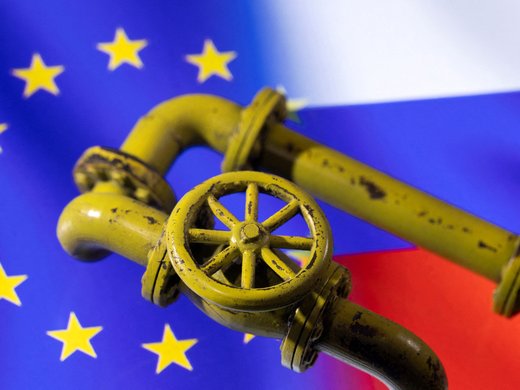Pyongyang proposed high-level talks with South Korea on Monday, only to cancel them on Wednesday, threatening also to call off the summit between North Korean leader Kim Jong-un and US President Donald Trump scheduled for June 12 in Singapore. North Korea’s official news agency initially blamed the rescheduled “Max Thunder” military exercise currently being conducted by US and South Korean air forces.
At least two things are puzzling about North Korea’s latest about-face. First, Max Thunder has taken place every year since 2009, and while it has always riled the North, Seoul and Washington were under the clear impression that Kim had given this year’s version the green light. As a spokesman for South Korean President Moon Jae-in put it on March 6, “Our stance on the joint military drills is that it is hard to postpone the exercises again or suspend them and there is no justification for doing so. But Kim said that he understands the South’s stance.” Second, the exercise began three days before North Korea proposed the high-level meeting that it has now cancelled. What is really going on?
We have no good window on North Korean decision-making, so we are left to draw inferences from indirect clues. In this case, it seems that there are three broad possibilities:
- Misunderstanding: North Korean leaders may have thought that Max Thunder had been cancelled, not rescheduled.
- Deliberate strategy: North Korea has a long history of making grand gestures and apparent commitments, only to renege later. Kim’s father, Kim Jong-il, used this strategy brilliantly to buy time and extract resources in the context of the Six Party Talks from 2003 to 2009, during which he traded off bits and pieces of his nascent nuclear program in return for fuel and diplomatic concessions, all the while stealthily mastering the technology that would later bear fruit in the form of a formidable nuclear arsenal. Perhaps the current regime is simply sticking to the old script, buying time and angling for concessions.
- Reaction: Perhaps leaders in North Korea are beginning to question the wisdom of continuing on the current path of détente and are looking to hit the brakes.
The first explanation is unlikely if only because it would suggest that North Korean intelligence is so bad that it failed to notice a large-scale US-ROK military exercise for three whole days.
The second explanation is possible, but one would have to wonder exactly what leaders in Pyongyang might hope to accomplish with a renege just now. June 12 is less than a month away and one would have to think that North Korea’s America-watchers would be pessimistic about the prospect of getting Washington to kick the summit down the road, not only because of the enormous transaction costs required to set a date in Singapore in the first place, but because the Trump administration has repeatedly stated that it is not willing to play that old game.
That leaves the third explanation. A key piece of evidence in favour of it is the official statement released on Wednesday by Kim Kye-gwan, North Korea’s first vice-minister of foreign affairs, which makes no reference to Max Thunder, but blasts the Trump administration in general, and national-security adviser John Bolton in particular, for insisting that the only acceptable outcome of talks is a “Libya mode of nuclear abandonment, ‘complete, verifiable and irreversible denuclearization,’” on the principle of “’abandoning nuclear weapons first, compensating afterwards.’”
Kim (Kye-gwan) goes on: “This is not an expression of intention to address the issue through dialogue. It is essentially a manifestation of awfully sinister move to impose on our dignified state the destiny of Libya or Iraq which had been collapsed due to yielding the whole of their countries to big powers.”
The statement is haughty, emotional and ad hominem. These normally indicate outrage, not strategy.
States ordinarily schedule summits when the outlines of a deal are already in place. In this case, the summit was scheduled first, and the negotiations have only just begun. It seems that North Korea does not like what it is beginning to learn about U.S. demands –and the White House, no doubt, does not like what it is beginning to learn about North Korean expectations. It’s hard to see a mutually acceptable deal.
This article originally appeared in The Globe and Mail.



